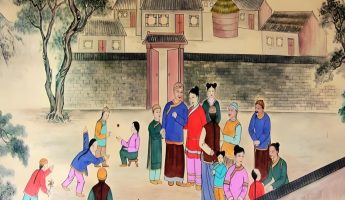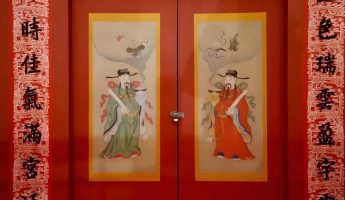In Yuanyang Hani and Yi Autonomous County, Yunnan, the Yi people follow their unique ancient solar calendar and celebrate the New Year twice a year. According to the Yi solar calendar, a year is ingeniously divided into ten months, starting on Rat Day and ending on Pig Day, repeating the zodiac three times. Each month is fixed at 36 days, with a total of 360 days throughout the year. The remaining days are dedicated to celebrating the New Year and are not included in the regular months. The Chinese New Year is held on the summer solstice for three days, symbolizing the ceremonies of welcoming, worshiping, and sending off ancestors; Xiaonian is scheduled for the winter solstice, lasting for two or three days (leap years plus ancestor worship days), also carrying the reverence and nostalgia for ancestors.
With the deepening of cultural exchanges with the Han ethnic group, although the Yi ethnic group in Yuanyang County has also begun to celebrate the Spring Festival together, they still adhere to their distinctive ethnic cultural characteristics. Before the Spring Festival, every household is busy slaughtering pigs to prepare for the new year, cleaning up to welcome the new year. Pine trees stand tall in front of the door, and pine branches adorn various parts of the house, symbolizing the prosperity and happiness of life. On the night of the 30th of the lunar new year, every household gathers together to strictly prohibit ominous words and ensure a harmonious and auspicious festive atmosphere. The whole family, young and old, holds a grand sacrificial ceremony to their ancestors, heaven, earth, and all things in nature. Afterwards, they do not forget to give alms to wild ghosts and express special gratitude to loyal dogs for bringing grain to humanity. Firstly, they reward them with delicious food.
On the first morning of the first lunar month, as the sun first appeared, men competed to go to the water well and offered sacrifices to the Water God by firing guns and cannons, striving to become the first person to fetch water in the new year. Later, the whole family dressed up to greet the god of wealth, made rice dumpling to worship the gods, and tapped rice dumpling on the children’s forehead to symbolize growth and blessing. On this day, the Yi people call it “Empress’s Day”, where women receive special treatment, household chores are mostly taken care of by men, and meals are abundant, symbolizing the abundance of years. There are many taboos on this day, such as not using knives and axes, not going out, etc. It is not until the second and third day of the lunar new year that people begin to visit relatives and friends, and women bring their children back to peace.



